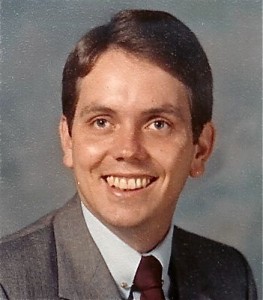@About
 This is the blog of Michael McLaughlin, a veteran of Oracle technology since Oracle 6 and an Oracle ACE since 2009 and Oracle ACE Pro since 2022. I’m the author of Oracle Database 12c PL/SQL Programming, Oracle Database 11g PL/SQL Programming, MySQL Workbench: Data Modeling & Development, and Oracle Database 11g & MySQL 5.6 Developer Handbook. I’m also the co-author of Oracle Database 11g PL/SQL Programming Workbook, Oracle Database 10g PL/SQL Programming and Expert Oracle PL/SQL. I’m also the author of Oracle Database 10g Express Edition PHP Web Programming and co-author of Oracle Database Ajax & PHP Web Application Development.
This is the blog of Michael McLaughlin, a veteran of Oracle technology since Oracle 6 and an Oracle ACE since 2009 and Oracle ACE Pro since 2022. I’m the author of Oracle Database 12c PL/SQL Programming, Oracle Database 11g PL/SQL Programming, MySQL Workbench: Data Modeling & Development, and Oracle Database 11g & MySQL 5.6 Developer Handbook. I’m also the co-author of Oracle Database 11g PL/SQL Programming Workbook, Oracle Database 10g PL/SQL Programming and Expert Oracle PL/SQL. I’m also the author of Oracle Database 10g Express Edition PHP Web Programming and co-author of Oracle Database Ajax & PHP Web Application Development.
I also have written articles for web sites, like Oracle’s Technical Network and on Quest’s web site, like Collections and Nested Tables or External Tables.
 I teach database technology and systems analysis in the Computer Science and Engineering Department at BYU – Idaho. I worked at Oracle Corporation for over eight years in consulting, development, and support. I’m the inventor of the ATOMS transaction architecture (U.S. Patents #7,206,805 and #7,290,056). The patents are assigned to Oracle Corporation.
I teach database technology and systems analysis in the Computer Science and Engineering Department at BYU – Idaho. I worked at Oracle Corporation for over eight years in consulting, development, and support. I’m the inventor of the ATOMS transaction architecture (U.S. Patents #7,206,805 and #7,290,056). The patents are assigned to Oracle Corporation.
You can find out more about me by checking my LinkedIn Profile. It has all the usual material, like where I went to school, where I’ve worked, and some nice things folks said about my work.
Unlike Steven Feuerstein, I still have my hair. Albeit, it’s a different color. As to what I looked like when starting my career, here’s the requested photo. I was a management trainee when it was taken after my undergraduate work,  three years of military service in the Army, and an LDS mission in Italy.
three years of military service in the Army, and an LDS mission in Italy.![]() Most of my military service was with the 504th Military Police Battalion, which was then stationed at the Presidio of San Francisco in California.
Most of my military service was with the 504th Military Police Battalion, which was then stationed at the Presidio of San Francisco in California.
Hi Michael, nice start and very useful articles.
good luck .. . shiv
shiv
1 Jul 08 at 5:57 am
Interesting site dedicated to none other than Oracle! 😛
Wayne Hartman
7 Oct 08 at 6:38 pm
Wayne, that’s a great observation. While it started out that way it isn’t any longer, so I’ve dropped the Oracle from the title. Thanks.
maclochlainn
17 Oct 08 at 11:36 pm
Hi Michael,
My co-workers and I are wanting to become PL/SQL certified (OCA) and are looking for exam preparation materials for the 1Z0-147 exam (Program with PL/SQL).
We found an Oracle press book for the SQL fundamentals prepatory exam (1Z0-051), but are unable to find a text that deals directly with the 1Z0-147 test.
Would your Oracle Database 11g PL/SQL Programming book cover the topics on that exam? If not, do you know of any other books that cover the required material?
Thanks in advance for your time,
Joe Hart
Sr. Software Engineer
jhartdude@gmail.com
Joe Hart
14 Jan 09 at 4:26 pm
Joe,
I didn’t actually write the book to target that exam but it covers the material that’ll be on the exam. There’s actually more in this edition about control structures and variable types than in the prior Oracle Database 10g PL/SQL Programming. Watch out for nuances on
DBMS_OUTPUT, and database triggers. TheFOLLOWScommand in Oracle 11g is a nice tidbit to master, as well as compound triggers. Some last minute corrections didn’t make it into the book, so I’d snag the Oracle Database 11g New Features from the presentation I made last spring at the Utah Oracle User’s Group. You might also get caught by a question on decrementing aFOR-loop, so you should understand theREVERSEkey word. You can check this blog post for a quick example.More or less, that exam mirrors the course material presented by Oracle in their courses. For example, the certification exam should cover more or less this:
Hope this helps,
Michael
maclochlainn
14 Jan 09 at 11:35 pm
Thanks for the quick (and thorough) response, Michael. That’s exactly what I needed to know! I appreciate the exam tips and links as well.
– Joe
Joe Hart
15 Jan 09 at 10:29 am
Hi Micheal, I’m new to sql, Well I should say not new I got my BA in CIS in 2002 but I haven’t used it. I want to teach my self oracle sql and become a Database Administer. I want to buy your book Oracle Database 11g PL/SQL Programming Workbook. Should I start there or do you suggest another book first? I just need hands on exercises and a way to get the actually software so I can practice as I learn, can you give me any suggestions? PLEASE,PLEASE reply. If you email me that would be perfect too.
Judi Smith
25 Mar 10 at 7:48 am
You might be more immediately served by checking out my tutorial site. It’s not quite finished yet, and I’ve got to smooth out the English. However, it’s up and running mostly.
As to a starting PL/SQL book, try the PL/SQL Workbook first then dig into the larger book.
maclochlainn
25 Mar 10 at 11:41 am
nice blog Michael McLaughlin…
roshni
6 Jun 12 at 12:05 am